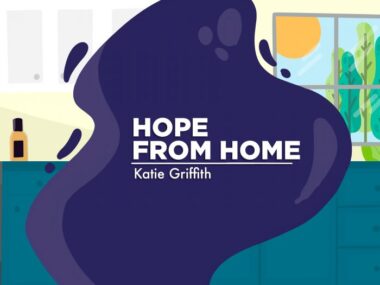Other people’s compassion teaches me how to practice self-love
A columnist works to retrain negative thought patterns that resulted from FA
Written by |

Most people know the Jackie DeShannon song that goes, “What the world needs now is love, sweet love/ It’s the only thing that there’s just too little of.”
While I can think of a few more things that there’s just too little of, I wholeheartedly agree that the world needs more love. I think I’d be hard-pressed to find someone who wouldn’t appreciate more love from their neighbors, enemies, and themselves.
This makes me wonder, what would more love look like in my life? Where is love lacking? How would my life be impacted by more love?
Letting hate give way to love
Friedreich’s ataxia (FA) has had a negative impact on my life and left me feeling somewhat unloveable at times. I feel like accommodating my struggles with FA can demand too much patience, compassion, kindness, and grace from loved ones, not that they would ever express that to me or hold it over me. I know those feelings are completely rooted in my internal lack of self-love.
I hate how slow I’ve become with FA, especially when those around me try to match my pace so they can spend time walking with me. I hate being unable to carry things, and I must regularly watch people effortlessly do for me what I simply cannot do. I hate how slow and sometimes slurred my speech is, and I see people leaning in to attempt to engage or understand me. I hate how often I have to ask for help. I hate looking so disabled.
Over the years, though, I’ve learned that the things I hate about my life with FA provide other people ways to show their love for me. Patiently slowing down to include me is love. Using their abilities to help me with the things I can’t do is love. Showing interest in what I have to say is love. Their inclusion of me is love.
This love looks different from what I’d anticipated, but that doesn’t make it any less genuine.
What I need to focus on is self-love. I recently read a Cleveland Clinic article stating that “self-love revolves most around self-compassion: It’s the intentional choice to show up for yourself, support your needs and wants, and honor your limitations.”
If I feel love when people show me compassion, I should be able to recognize the impact that self-compassion could have on my life.
Therefore, I’m going to try to focus on self-love, starting with retraining my negative thought patterns.
FA doesn’t define my worth. From now on, I’ll try to think, “This person is slowing down to walk with me because they love me, and I am worthy of love. They are helping me because they love me, and I am worthy of love. They are leaning in because they love me, and I am worthy of love.”
Hopefully, recognizing the love I am shown will help me to love myself and, in turn, share that love with others. After all, the world needs love, love, sweet love.
“Love is patient, love is kind. It does not envy, it does not boast, it is not proud. It does not dishonor others, it is not self-seeking, it is not easily angered, it keeps no record of wrongs. Love does not delight in evil but rejoices with the truth. It always protects, always trusts, always hopes, always perseveres.” — 1 Corinthians 13:4-7
Note: Friedreich’s Ataxia News is strictly a news and information website about the disease. It does not provide medical advice, diagnosis, or treatment. This content is not intended to be a substitute for professional medical advice, diagnosis, or treatment. Always seek the advice of your physician or another qualified health provider with any questions you may have regarding a medical condition. Never disregard professional medical advice or delay in seeking it because of something you have read on this website. The opinions expressed in this column are not those of Friedreich’s Ataxia News or its parent company, Bionews, and are intended to spark discussion about issues pertaining to Friedreich’s ataxia.



Leave a comment
Fill in the required fields to post. Your email address will not be published.